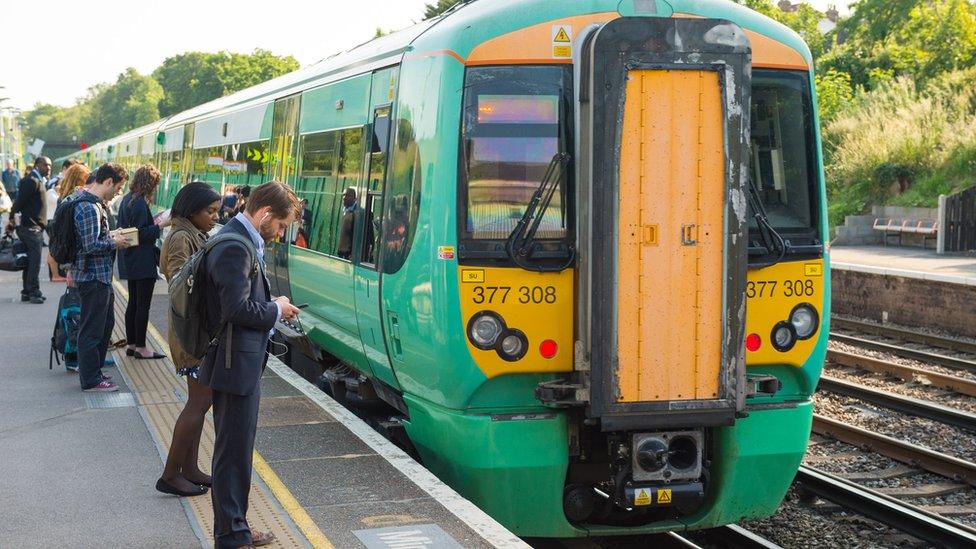Rail franchising system 'not fit for purpose', MPs warn
- Published
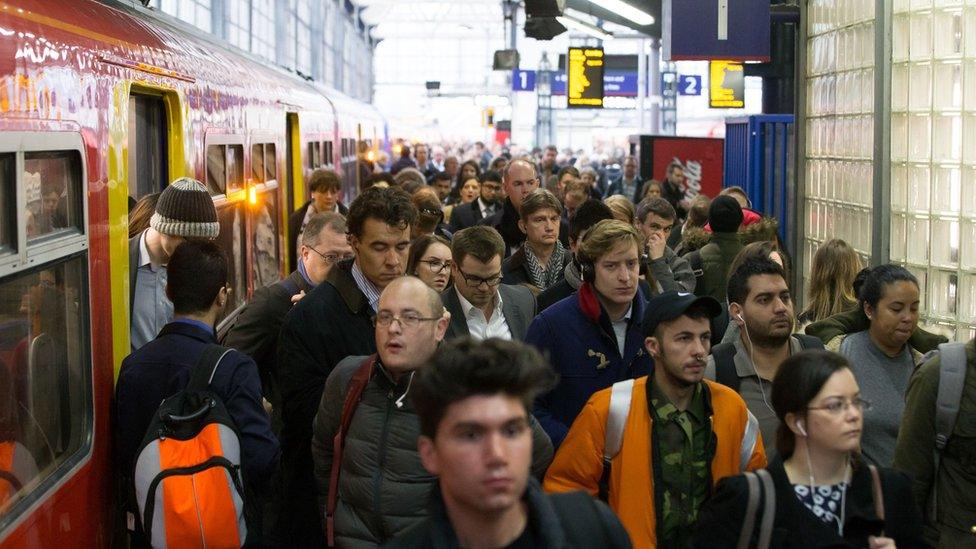
The UK's rail franchising model is "no longer fit for purpose" and is failing passengers, MPs have warned.
The Transport Committee said there were "serious deficiencies" in the way the Department for Transport awarded contracts, leading to higher fares and poor performance.
The MPs urged ministers to launch an independent review of the system.
Transport Secretary Chris Grayling said the committee had made some "sensible recommendations".
He said the main problem was that the rail network was "bursting at the seams".
The MPs' report said the current model of awarding franchises to companies to run services in different parts of the country had enabled the rise in passenger numbers.
But they said it had not increased competition in the way the government had hoped in the 1990s.
"Many metrics of performance are plateauing and the passenger is not receiving value for money," the report said.

How the system works
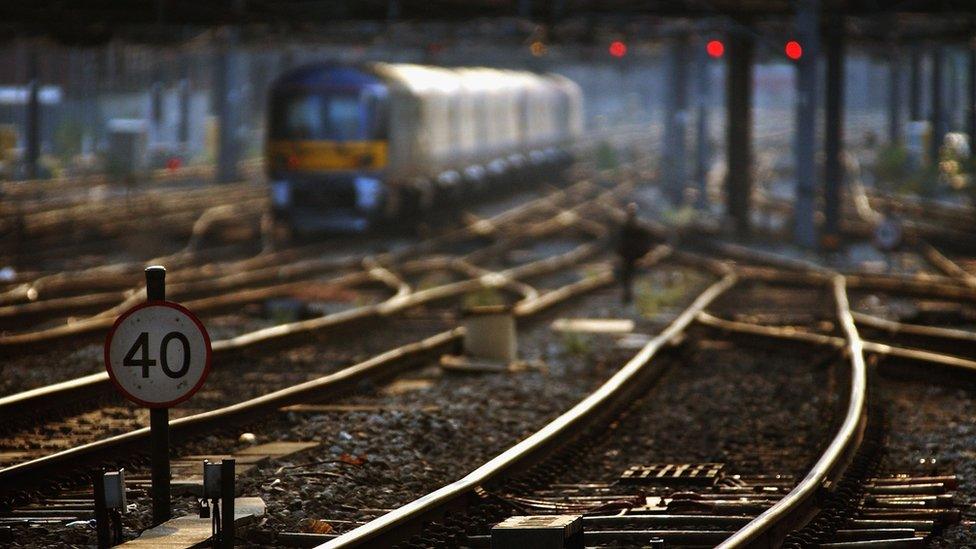
There are 15 franchises in England and Wales which each give companies the right to run passenger services in a particular area for a specified period
They are awarded following a tendering process that involves the Department for Transport asking for expressions of interest before it consults with the public and ultimately selects an operator from a shortlist of companies bidding for the contract
The railway network was privatised under John Major's Conservative government in 1993
Labour has promised to renationalise the railways as each contract expires
The train operating companies are not responsible for track maintenance, which falls to publicly-owned Network Rail

The committee said while there could be no "single template" for franchises, there was "merit" in obtaining longer agreements covering smaller areas.
The opportunity of smaller franchises with less financial risk could lead to new companies appearing on the market, the MPs said.
Their report comes after the Association of British Commuters applied for a judicial review into the government's handling of the Southern rail crisis, which has seen months of delays and cancellations with packed services hit by a wave of industrial action.
The group says ministers have acted unlawfully by failing to determine whether managers have breached franchise obligations.
The Transport Committee also called on the government to set out how much the problems with the Southern, Thameslink and Great Northern franchise had cost taxpayers.
"Given the exposure of the taxpayer to the failings of this franchise, it is unacceptable for the department to maintain its current 'arms-length' approach," the report said.
"We recommend the department intervene to ensure that all possible steps are being taken to stop the haemorrhaging of income."
It said the government should consider "restructuring" the franchise if operator Govia Thameslink was officially found to be in breach of its franchise.
Transport Committee chairman Louise Ellman said: "While franchising enabled passenger growth and service improvements when it was first rolled out, passenger satisfaction with the railways is falling.
"Its core objectives are no longer being met, potential benefits are being lost and the passenger is suffering through higher fares and continued underperformance."
In January the cost of a rail ticket rose on average by 2.3%, prompting protests at railway stations across the UK.
Ms Ellman told BBC Breakfast the DfT was too soft on train companies that broke promises on performance.
"And if the department can't do that, perhaps somebody else should be looking at it to enforce the promises that the train companies make when they take over running the service," she said.
'Better collaboration'
The MPs suggested that a complete restructuring of the system would be "prohibitively impractical", but it recommended that as contracts expired the DfT might consider whether they be modified to "align better with the specific market they serve".
Labour, which wants to bring the railways back under public ownership, said the network was "fragmented and inefficient".
Shadow transport secretary Andy McDonald said: "A railway works best as an integrated network but privatisation and franchising have meant breaking it up."
Speaking on BBC's The Andrew Marr Show, Mr Grayling said the government was already taking steps to ensure Network Rail worked more closely with rail operators, as recommended by the committee.
The DfT said £40bn was being invested to upgrade the railways and that the franchising system had helped to create one of the safest and fastest growing networks in Europe.
A spokesman said: "We can make improvements and the transport secretary has been clear that it will take new ways of working, more investment and better collaboration across the industry to tackle the challenges ahead."
- Published2 January 2017
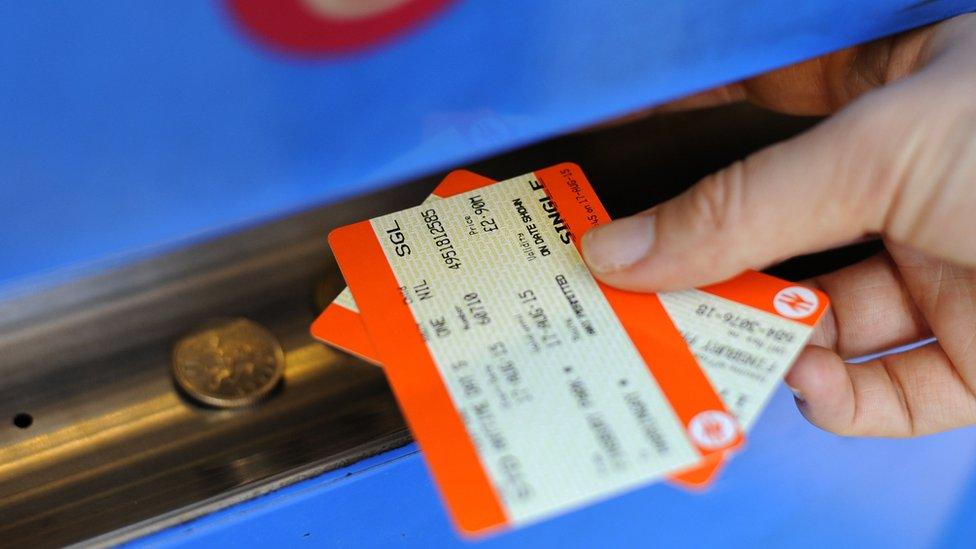
- Published3 January 2017
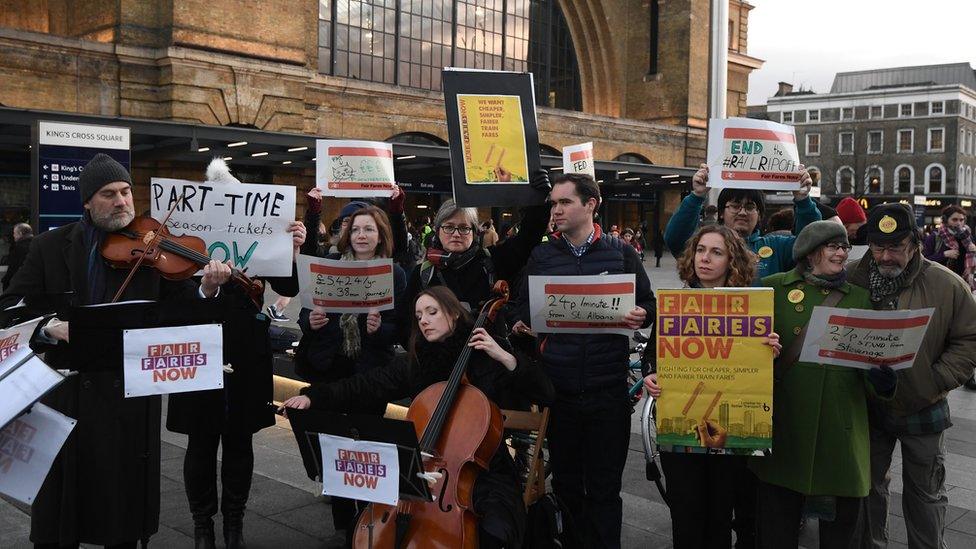
- Published12 February 2016

- Published1 February 2017
